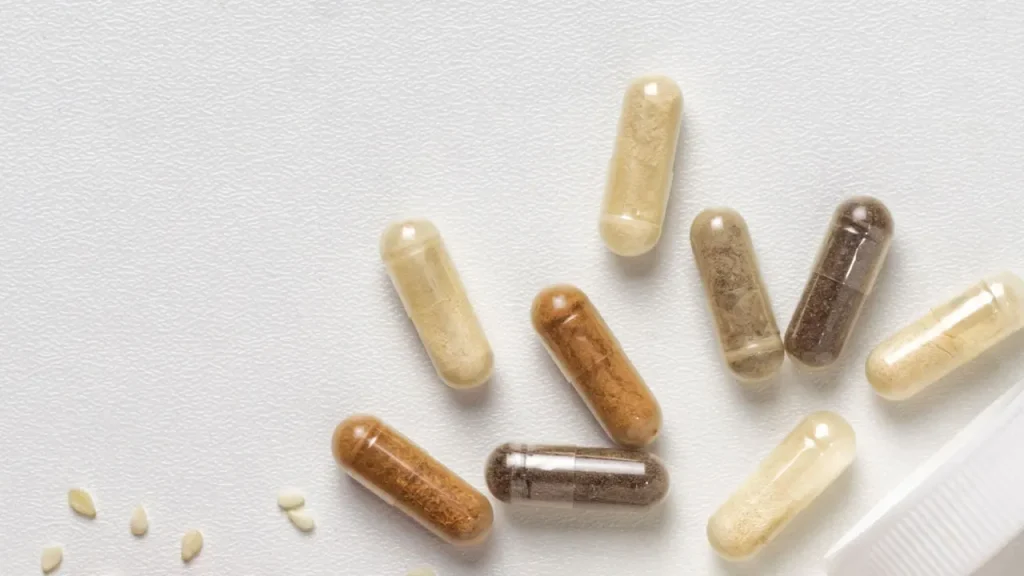Broom corn, also scientifically known as sorghum bicolor, gets its name from the use of its strong fibrous strands in the manufacture of brooms. Broom corn offers a variety of nutritional advantages. Although there is still very little research done on broom corn, especially in terms of its potential as a dietary supplement, this article explores the broom corn’s intricate scientific makeup, illuminates its health advantages, ideal dosage, potential side effects, possible drug interactions, and its appropriate usage.
You May Also Like:
5 Great Nootropic Herbs for Focus and Mental Clarity
5 Great Nootropic Herbs for Energy, Focus, and Productivity
Broom Corn: Benefits, Dosage, Side Effects, Drug Interactions, and Other Important Information is an original (NootropicsPlanet) article.
The Nature of Broom Corn
Broom corn is a kind of sorghum, a cereal grain that is grown around the world, especially in Asia and Africa. Broom maize is distinguishable from ordinary sorghum by its protracted, fibrous tassels, which can grow up to two meters long. The seeds, which are the main source of its nutritional advantages, are found in the tassels.
Broom corn seeds are a good source of protein, fiber, vitamins, and minerals. Notably, they are a great source of the B-vitamins thiamin, riboflavin, niacin, and folate, which are essential for both metabolic and brain processes. Broom corn is also gluten-free, which makes it a beneficial dietary supplement if you have celiac disease or non-celiac gluten sensitivity.
Health Benefits of Broom Corn
The high polyphenol content of broom corn—primarily in the form of tannins and flavonoids—is a prominent feature of its nutritional profile. Dietary polyphenols have been linked to lowered risks for chronic conditions including cardiovascular disease, type 2 diabetes, and several cancer types.
Strong antioxidants, flavonoids, and the anthocyanins in broom corn can combat dangerous free radicals in the body, lowering oxidative stress and inflammation. Additionally, these substances have neuroprotective properties that can possibly mitigate neurodegenerative conditions including Alzheimer’s and Parkinson’s disease.
Broom corn has a high quantity of dietary fiber, which helps with regular bowel movements and lowers the risk of constipation, supporting digestive health. Additionally, fiber contributes to the prevention of type 2 diabetes by reducing the absorption of sugar into the circulation, which can help manage blood sugar levels.

The Chemistry of Broom Corn
Broom corn’s positive properties are mostly due to the abundance of dietary polyphenols, fiber, and the important vitamins and minerals that it contains. The polyphenols have strong antioxidant properties, particularly flavonoids and tannins. They reduce cellular damage and inflammation by neutralizing dangerous free radicals produced during metabolic processes.
Broom maize contains a kind of flavonoid called anthocyanins, which can pass the blood-brain barrier and have neuroprotective effects. They affect brain plasticity and alter neuronal signaling pathways, possibly reducing the effects of neurodegenerative disorders. Additionally, beta-amyloid protein aggregation, a pathogenic feature of Alzheimer’s disease, is inhibited by anthocyanins.
Physiological Properties of Broom Corn
Broom corn’s high fiber content helps enhance gut health and function. Constipation is avoided and regular bowel movements are made possible by the fiber, which gives the diet more volume. Additionally, it serves as a pre-biotic, feeding the good bacteria in the stomach that support immunity and general gut health.
The nutritional advantages of broom corn are also attributed to its high protein content. The creation of enzymes, hormones, and tissue development and repair all depend on proteins. Additionally, the high mineral content of broom corn—which includes potassium and magnesium—helps to control blood pressure as well as nerve and muscle activity.

Optimal Dosage of Broom Corn
Due to differences in dietary requirements, health conditions, and lifestyle factors, the ideal dose of broom corn as a dietary supplement has not yet been determined for all people. However, the U.S. Dietary Guidelines state that an adult’s daily consumption of whole grains should not exceed 48 grams, or around three servings. This suggestion might provide as a starting point for comparison when taking into account the entire grain profile of broom corn.
It is important to keep in mind that these suggestions are just guidelines and that every person has different demands. The optimum dose may be influenced by factors including age, sex, amount of physical activity, and certain medical problems. Therefore, before adding broom corn or any new dietary supplement to your routine, it is advised to speak with a healthcare professional or a qualified dietitian.
Side Effects and Potential Substance Interactions
Broom corn is generally safe to eat and has few side effects. However, owing to its high fiber content, excessive ingestion can cause gastrointestinal upset. Rarely, those who consume broom corn may get an allergic response that causes symptoms including redness, breathing difficulties, and itching.
Despite its health advantages, if you have certain medical problems, you should use care while consuming broom corn. If you have renal illness or are on a potassium-restricted diet, you should watch your consumption due to its high potassium level. Furthermore, the high vitamin K concentration of broom corn can interact with blood-thinning drugs like warfarin, perhaps lowering their efficiency.

Potential Substance Interactions
There is a dearth of scientific information on the interactions of broom corn with other drugs or treatments. There is currently no documented proof that broom corn causes substantial side effects or interactions with widely used drugs. There are theoretical implications worth considering, nevertheless, given the nutritional nature of broom corn.
Its high vitamin K concentration is one such factor to take into account since it may possibly interact with anticoagulant drugs like warfarin. Blood clotting is greatly influenced by vitamin K, and eating meals rich in this vitamin may lessen the efficiency of blood-thinning drugs.
Broom corn’s high fiber content can also interfere with the way certain medicines are absorbed. In the digestive system, dietary fiber can bind to various medications, possibly reducing their absorption and effectiveness. Therefore, if you are taking medication, you should think about ingesting broom corn in addition to your regular dosage and only after consulting a healthcare professional.
Finally, if you have renal illness or are following a diet low in potassium, you may be concerned about the high potassium level of broom corn. People with impaired renal function can experience damage from excessive potassium intake because the extra potassium may not be properly excreted from the body.
Responsible Use of Broom Corn
Broom corn may be a beneficial addition to the diet because of its health benefits and nutritional advantages. But it shouldn’t take the place of a wholesome diet and way of life. Before beginning any new dietary supplement, always talk to your doctor, especially if you have any health issues or are on any medications.
Broom corn’s promise goes beyond its usage as a dietary supplement. Its strong fibers may be used to produce biofuel, which will aid in the development of sustainable energy solutions. Broom corn’s gluten-free status also makes it a great alternative for creating gluten-free food items, giving those with celiac disease or gluten sensitivity more dietary choices.

Broom Corn:
Conclusion
Although broom corn is typically safe to eat and healthy, its intake should be adapted to each person’s requirements, and possible drug interactions should always be taken into account. As usual, it is wise to get medical advice before adding broom corn or any other new dietary supplement to one’s diet, especially for those on medication or who have underlying health issues.
References:
- Dietary Polyphenols, Their Metabolism and Impact on Health. Retrieved from: https://www.mdpi.com/2072-6643/10/10/1487
- Health Benefits of Whole Grains. Retrieved from: https://www.hsph.harvard.edu/nutritionsource/what-should-you-eat/whole-grains/
- Dietary Fiber: Essential for a Healthy Diet. Retrieved from: https://www.mayoclinic.org/healthy-lifestyle/nutrition-and-healthy-eating/in-depth/fiber/art-20043983
Important Note: The information contained in this article is for general informational purposes only, and should not be construed as health or medical advice, nor is it intended to diagnose, prevent, treat, or cure any disease or health condition. Before embarking on any diet, fitness regimen, or program of nutritional supplementation, it is advisable to consult your healthcare professional in order to determine its safety and probable efficacy in terms of your individual state of health.
Regarding Nutritional Supplements Or Other Non-Prescription Health Products: If any nutritional supplements or other non-prescription health products are mentioned in the foregoing article, any claims or statements made about them have not been evaluated by the U.S. Food and Drug Administration, and such nutritional supplements or other health products are not intended to diagnose, treat, cure, or prevent any disease.


